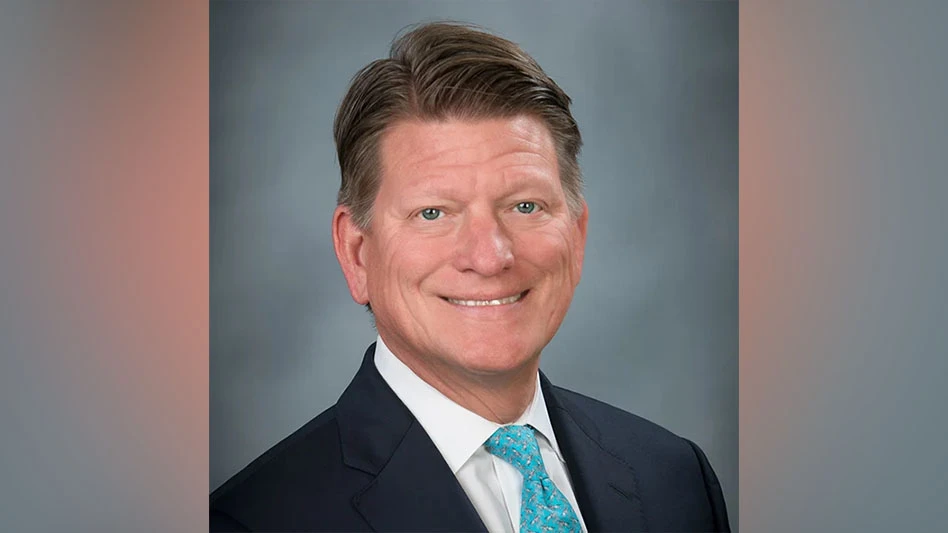As part of his speech during February’s NPMA Legislative Day, Republican National Committee Chairman Michael Steele had this advice for attendees before they headed to Capitol Hill: "The conversation they want to have is not the conversation that you want to have and you must have," said Steele. "So what will it take for them to listen to you? It’s not what you say — it’s how you say it. I say you go in there with a big ole sledgehammer and say, ‘Pay attention and listen to me.’"
What was different about this year’s visits to Capitol Hill as opposed to previous Legislative Days? Americans are becoming increasingly frustrated with a government that has become more and more partisan and less effective, meaning that constituents are more likely to vote out their elected officials. "The American people are looking at issues differently, they are engaging differently and the sledgehammer that could fall is the heads of the incumbents — both Democrats and Republicans," Steele said. "There is a very different dynamic…you are in the driver’s seat."
With that advice, Legislative Day attendees headed to Capitol Hill to encourage their representatives to consider the industry’s position on the following:
CARD CHECK. The Employee Free Choice Act (H.R. 1409, S. 560) also referred to as "card check." EFCA is proposed legislation to "amend the National Labor Relations Act (NLRA) to establish an easier system to enable employees to form, join, or assist labor organizations, to provide for mandatory injunctions for unfair labor practices during organizing efforts, and for other purposes."
Currently, NLRA establishes two primary ways that employees are able to form or join a union: 1) a private ballot election administered by the National Labor Relations Board (NLRB) after at least 30 percent of workers have signed authorization cards or 2) the collection of signed author-ization "check cards" from a majority of employees in a bargaining unit.
EFCA fundamentally alters the NLRA by allowing unions to use the "card check" process or signature campaign each time they try to organize employees. If enacted, EFCA would require the NLRB to certify any union that secures a simple majority of signatures through this petition-like process. Such a process effectively allows the establishment of unions everywhere without a valid vote. Under the "card check" method, union organizers present employee signatures on authorization cards as representing the true intent of the workers. However, even a Federal Appeals Court has noted that, "Workers sometimes sign union authorization cards not because they intend to vote for the union in the election, but to avoid offending the person who asks them to sign, often a fellow worker, or simply to get the person off their back."
Many businesses, including pest control businesses, believe that the only way to guarantee worker protection is through the continued use of a federally supervised private ballot so that personal decisions about whether to join a union remain private. Swapping federally supervised private ballot elections for a "card check" process tramples the privacy of individual workers who should not have to reveal to anyone how they exercise their right to choose whether to organize their co-workers in a union.
Terminix’s Norm Goldenberg reviewed this issue with attendees prior to their Legislative Day visits. Goldenberg said that EFCA is an effort by unions to make money by increasing membership, thereby collecting more union dues. Goldenberg said the bigger issue is that EFCA divides a company’s workforce. "Let’s say you have 10 people in your company and six of them sign the card check to become a part of a union. Then what about the four other people that didn’t sign? You will have two opposing workforces in your operation."
SEPA. In December 2009, a new version of the School Environment Protection Act (SEPA), H.R. 4159, was introduced in Congress by Rep. Rush Holt (D-N.J.).
NPMA and its members believe that this most recent federal school pesticide bill is unnecessary, overreaching legislation that unjustifiably restricts the use of commonly used pest control products at schools.
Moreover, SEPA imposes bureaucratic and onerous notification and posting requirements upon school districts including advance notice of all applications of pesticides not designated as a "least toxic pesticide" as well as annual notice of the school pest management plan.
Perhaps the biggest problem is that SEPA is "one-size-fits-all" legislation that requires schools in Florida to manage pests the same as schools in Alaska, completely ignoring the different pest pressures in each state. Additionally, close to 40 states already have laws or regulations in place specific to pest management in and around schools. Adopting a federal bill would create chaos and confusion — not only among PMPs but in school districts — in states that already have some sort of school pest management law or regulatory requirement in place. Mike Katz, president, Western Exterminator, Anaheim, Calif., who reviewed this issue with Legislative Day attendees, said school pesticide legislation is more of a "state issue."
*****
Donnie Blake Receives 2010 Legislative Day Award
In recognition of his efforts lobbying for the pest control industry on the state and national levels, Donnie Blake, president, OPC Pest Control, Louisville, Ky., was recognized with the FMC Legislative Day Award. Blake was presented the award by Dan Rosenbaum, business director, FMC Professional Solutions.
Blake has been active politically, both within NPMA and within his community. During the past 10 years Blake has held several positions within NPMA including president (2003), and served as chairman of NPMA’s Government Affairs Committee. Blake is a four-time president of the Kentucky Pest Management Association, and he’s served five consecutive terms as secretary-treasurer.
Additionally, Blake, a self-described "political junkie," has been active in local politics. He serves as a local councilman and also is a member of The Louisville Metro Planning Commission.
Blake said he considers the FMC Legislative Day Award the "Holy Grail" of awards. "Politics is my passion and over the years I’ve seen icons in this industry receive this award such as Norm Goldenberg, Bob Russell, Mike Katz, Tom Diederich, Charlie Hromada, Jerry Keown and Rick Bell. To be in the same place as these individuals is phenomenal."
Other highlights of Legislative Day 2010 included:
- NPMA Executive Vice President Rob Lederer recognized the contributions of Responsible Industry for a Sound Environment (RISE) President Allen James, who announced he was retiring, effective Aug. 31, 2010. James, who has been with RISE for 19 years, has been a passionate advocate for the specialty chemicals industry. James and NPMA Senior VP Bob Rosenberg have worked closely on numerous regulatory issues that impact both associations and their members. In presenting the award to James, Lederer said, "We cannot tell you how much we appreciate your partnership, your leadership. Allen James was one of those individuals who understood early on that the industries were much stronger together than they were apart."
- NPMA’s Political Action Committee made a $5,000 donation to the campaign of Robert Dold (R-Ill). Dold, president of Rose Pest Solutions, is running as the Republican candidate in Illinois’ 10th Congressional District. In February, Dold was declared the winner of Illinois 10th Congressional District Republican primary.
*****
BED BUGS. Another important objective of Legislative Day was for attendees to educate legislators about the growing bed bug problem and to "prime the pump" should a bill aimed at addressing the bed bug crisis be introduced in Congress.
Attendees were asked to advise Congress to consider the following options:
Provide additional resources and direct CDC to provide leadership. Additional resources are needed to help combat bed bug problems that plague lower or fixed income housing. Congress can provide much needed relief by directing the U.S. EPA and U.S. Department of Housing and Urban Development (HUD) to divert existing resources to fight bed bugs in lower and fixed income housing. Specifically, Congress should direct EPA and HUD to make funds available from the Pesticide Environmental Stewardship Program, Environmental Justice Small Grants and other programs to states, local governments, and local housing authorities to combat bed bugs. To ensure that the funds are used effectively, eligibility should be limited to entities that adopt and implement a bed bug action plan and require treatments be performed by state-certified pesticide applicators trained in effective pest management strategies.
Authorize research. The pest management industry has funded a number of bed bug-related research projects and will continue doing so. EPA’s continuing pesticide re-evaluation program will likely lead to the loss of additional products. Because of the limited size of the industry’s bed bug product portfolio and the high cost of developing new products, there may not be sufficient incentives for the private sector to develop new safe and effective bed bug control products. Congress should rectify this problem by establishing a research program to help develop effective methods of controlling bed bugs and other resurgent household pests. The program could be housed at the U.S. Department of Agricultures IR-4 program or the Agricultural Research Service in conjunction with land grant universities with structural pest management expertise.
Consider additional criteria in approving pesticide products. When EPA registers new products, alters or re-evaluates the registration of existing products or considers petitions for emergency exemptions, it should consider factors such as (1) the impact on Americans’ "quality of life" when residential and other pests are not able to be controlled; (2) the risks that arise when consumers resort to overapplying ineffective products or use unregistered products or other homemade remedies; and 3) the opportunity for the proliferation of inefficacious or "snake oil" type products when affordable, effective products do not exist.
In a related issue and to discourage the marketing of ineffective products by unscrupulous companies, Congress could require efficacy data for all pesticide products claiming to control bed bugs, to provide assurance to the professional industry, consumers, and federal and state regulatory officials that such products work as advertised. This is especially important for bed bug control products because it is not always immediately obvious when a product does not work.
A concerted federal effort is needed to combat the crises. EPA should create an advisory committee under the Federal Advisory Committee Act, chaired by the assistant administrator, advising EPA on strategies it may adopt to effectively combat bed bugs. Members of the committee would be drawn from state and local health and housing officials, pest management industry representatives and state pesticide regulatory agencies.
Congress should require the Secretaries of the Departments of Health and Human Services, Commerce, and Housing and Urban Development, as well as the EPA Administrator, to report to Congress on steps the federal government could take to combat the bed bug epidemic. Congress also should demand greater intergovernmental cooperation and coordination by instructing the same four parties mentioned above to take measures to coordinate the federal government’s response to the crisis.
Legislative Day 2010 was sponsored by FMC and Dow AgroSciences.
The author is Internet editor of PCT Online and can be contacted at bharbison@giemedia.com.

Explore the April 2010 Issue
Check out more from this issue and find your next story to read.
Latest from Pest Control Technology
- Pest Control Equipment: If it’s Critical, Back it Up!
- In Memoriam: Marybeth Wonson
- In Memoriam: Layton Word
- Mitchell Boston's Involvement as Local Councilman Sparks Growth in Pest Control Business
- Grizz Pest Management Owners Support Wildlife Conservation with Brookfield Zoo in Chicago
- Grizz Pest Management Partners with Brookfield Zoo to Build Tropical Forests Exhibit
- Truly Nolen Promotes Bohne to Vice President of Business Development
- Watch: Abell Pest Control Holds Snap Trap Challenge





